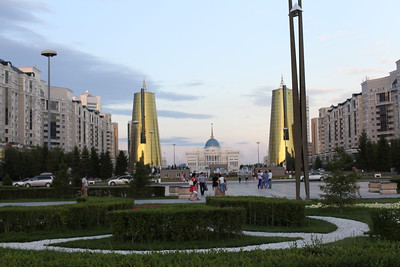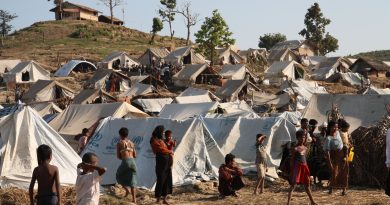FOCUS on Recent Post-Soviet Instability: Kazakhstan
Austin DelSontro
Staff Writer
Since the Russian invasion of Ukraine, Kazakhstan has operated with a level of diplomatic caution, seeking to strike a delicate balance between its international relationships and domestic stability. This delicate balancing act reflects the country’s ongoing efforts to maintain stability in a complex geopolitical environment. Kazakhstan has refrained from openly criticizing its traditional ally, Russia, while consistently advocating for peace. In an interview with Al Jazeera, Kazakhstan’s Deputy Foreign Minister Roman Vassilenko affirmed how impactful this war is for the Kazakhstani people. Because of its close ties with both Russia and Ukraine, Kazakhstan sought to establish itself as a potential mediator right from the start of the conflict.
In 2022, Kazakhstan underwent a year of turmoil and transformation. As DW explores, the nation was rocked by days of extensive unrest in western Kazakhstan in the early days of January, triggered by public anger over a sharp surge in gas prices. Over the following days, protests rapidly spread to numerous major cities across the country. This period, now referred to as “Bloody January,” saw the burning of administrative buildings, widespread looting of businesses and banks, the occupation of the airport, and the looting of security services’ arms depots. Official figures indicate that the January tragedy resulted in 238 casualties nationwide, including approximately a dozen police officers.
As the European Council on Foreign Relations (ECFR) explains, in a bid to quell the protests, Kazakhstan’s President, Kassym-Jomart Tokayev, sought assistance from the Collective Security Treaty Organization (CSTO), a Russian-dominated military alliance. At the time, this move was widely perceived by both Kazakhstani people and international observers as a gesture of allegiance to Moscow. Since the dissolution of the Soviet Union, Kazakhstan has maintained a close and dependable partnership with Moscow within the post-Soviet landscape, participating in all regional initiatives initiated by Russia in the region. While the CSTO’s involvement might have been seen as a potential shift towards closer alignment with Russia, the balanced stance adopted by Kazakhstani authorities following Russia’s invasion of Ukraine raised cautious optimism about the country escaping Russian influence.
Responsible Statecraft notes that Kazakhstan has faced Western criticism for its approach to the conflict. However, the nation’s decision to refrain from supporting United Nations (UN) resolutions condemning Russia is pragmatic, considering its geographical location and internal makeup. As a vast landlocked nation, Kazakhstan has traditionally pursued a multi-vector foreign policy to foster peaceful coexistence with its neighbors, relying heavily on diplomacy to ensure its security and stability. Despite the dissolution of the USSR, Kazakhstan maintains a significant ethnic Russian minority, constituting approximately 16 percent of the population. Given the multi-ethnic fabric of the society, the ruling elite have promoted the concept of a “Kazakhstani” nation, one that embraces all ethnicities, as opposed to a strictly “Kazakh” nation. This approach has effectively mitigated ethnic tensions to this day.
While Kazakhstan has yet to condemn Russia’s actions, Kazakhstan has taken some attempts to distance themselves from Russian influence. As The Guardian details, the Kazakhstani legislature has unveiled initiatives aimed at boosting the usage of the Kazakh language in its media, signaling a response to mounting concerns about Moscow’s influence in the country following the Ukraine invasion. While Kazakh serves as the country’s official language, Russian is also acknowledged and widely spoken within the country. The new legislation is presently under debate among lawmakers, but it is anticipated to receive approval in parliament as well as by Kazakh President Kassym-Jomart Tokayev.
Additionally, Radio Free Europe reports President Tokayev has affirmed that his country will not assist Russia in evading Western sanctions imposed in response to the conflict in Ukraine amid suspicions that Moscow may use Central Asian nations to acquire goods. Kazakhstan shares a lengthy 7,500-kilometer border with Russia. However, Kazakhstan has not formally recognized the Ukrainian regions occupied by Moscow as part of Russia. In line with the European Union’s efforts to tighten control on the re-export of sensitive goods to Russia by third countries, Kazakhstan is actively engaged in compliance with the sanctions. President Tokayev emphasized that there should be no European concerns regarding potential actions aimed at circumventing the sanctions.
Kazakhstan has continued their attempts to walk a fine line since the Russian invasion of Ukraine. It has largely opted to abstain, rather than side with Russia, in UN votes on the war. But it understands the threat Russia poses, given their shared border. Kazakhstan has been left in a very precarious position. For the time being, Kazakhstani officials will watch the conflict play out and hope for the best.
Image courtesy of Flickr



